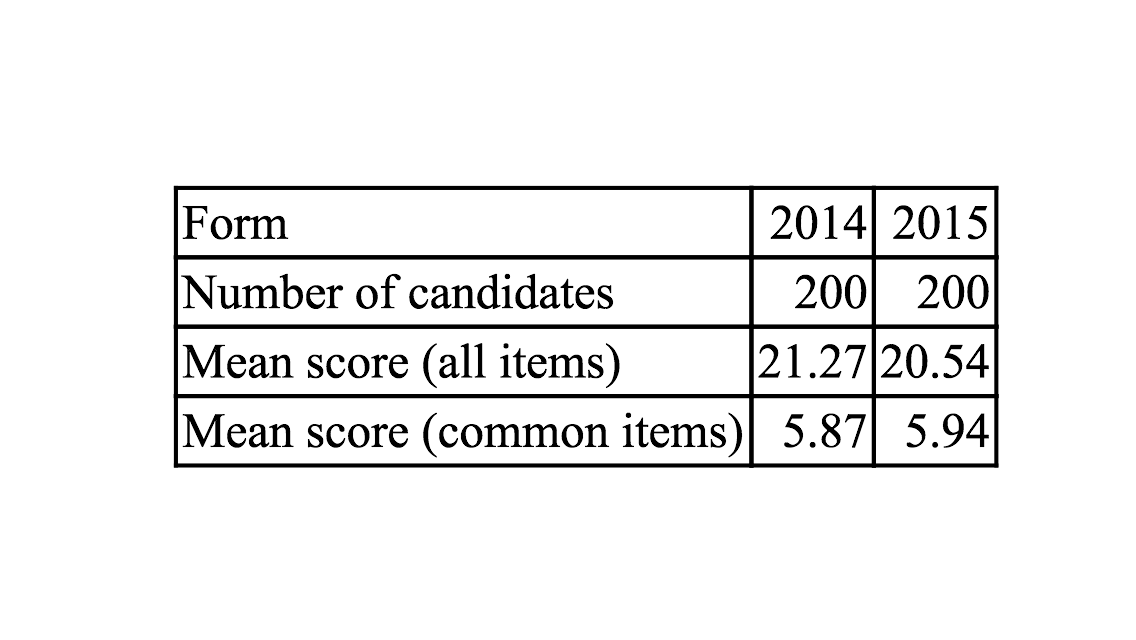Tag Archive: Certification
April 26, 2021 | By Christine Niero, Ph.D. |
|
|
Introduction As a result of the COVID 19 pandemic Professional Testing staff needed to quickly adapt to hosting examination development... View Article
|
February 2, 2021 | By Christine Niero, Ph.D. |
|
|
By Christine Niero, Ph.D., Vice President, Professional Certification and Cynthia D. Woodley, Ed.D., Chief Operations Officer & Psychometrician Introduction As... View Article
|
May 20, 2020 | By Cynthia G. Parshall, Ph.D. |
|
|
Just a few short weeks ago, the work world underwent a rapid, unplanned, sea change. Those of us in the... View Article
|
November 27, 2018 | By Cynthia G. Parshall, Ph.D. |
|
|
By Cynthia G. Parshall and David Cox What are the biggest pain points that you have to deal with, at... View Article
|
October 10, 2018 | By Adrienne Cadle, Ph.D. |
|
|
One of the first questions an organization must answer when establishing a computer-based examination program is whether they want to... View Article
|
August 17, 2016 | By Christine Niero, Ph.D. |
|
|
This is a question we ask many organizations seeking to develop a certification program. It’s not that we want to... View Article
|
November 5, 2015 | By Reed Castle, Ph.D. |
|
|
Co-authored by: Reed Castle, Ph.D. and Vincent Lima Certification examination programs often have more than one examination form (set of questions, or items) in use at a time, and they require routine updates. The exam forms represent the same content, but have different items. As new items come into use, they may be easier or harder than the first set of items. As a result, exam forms can have varying degrees of difficulty. These variations need to be taken into account when reporting scores and pass/fail decisions over time and exam forms.
|
October 21, 2015 | By Cynthia D. Woodley, Ed.D. |
|
|
While conducting research for a journal article, I came across this definition of “certification”: “Certification refers to the confirmation of certain characteristics of an object, person or organization. This confirmation is often, but not always, provided by some form of external review, education, assessment or audit. Accreditation is a specific organization’s process of certification” (Wikipedia).
|
April 29, 2015 | By Cynthia D. Woodley, Ed.D. |
|
|
A job/task analysis is (JTA) is a very close look at a job, portion of a job, or concept job in order to identify the tasks and associated knowledge, skills and abilities (KSAs) required to competently perform the job. A JTA is the foundation for the development of a certification program or a certificate program. Only after the KSAs have been identified can a certification body or educational program determine how to measure competence of the KSAs or how to teach the KSAs. There are multiple methods for conducting a JTA including using focus groups, structured interviews, job shadowing and observations, and surveying practitioners. When conducting a JTA as the basis for a certification program, the method used is not as important as making sure the right subject-matter-experts (SMEs) participate in the process.
|
April 17, 2015 | By Professional Testing |
|
|
In March a livestreaming video platform by the name of Meerkat exploded at the South by Southwest (SXSW) festival in Austin, just two weeks after its initial launch. Shortly after Meerkat’s SXSW debut, Periscope, another live video streaming app recently acquired by Twitter, made a grab for the spotlight. As these new platforms for learning evolve we must ask ourselves, does livestreaming play a role in certification programs? We believe they can.
|
|
|
|






